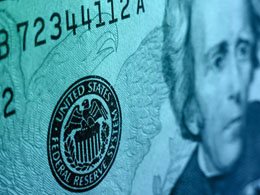
Businesses Should Monitor Bitcoin's Evolution, Attorney Writes
Thanks to a surprise rally in which its price soared to more than $500 on some exchanges, Bitcoin has been in the news of late. But what should U.S. business owners think about the controversial crypto-currency? LeClairRyan attorney Christopher A. Wiech tackles this question and more in a new series on Bitcoin for the national law firm’s InformationCounts blog.
In “What We Know About Bitcoin, and What Is Still Unknown,” the Atlanta-based attorney writes that businesses are already strategically integrating Bitcoin into their operations. In fact, some companies that accept Bitcoin have even sought to protect themselves against the crypto-currency’s notorious value fluctuations by hedging their Bitcoin positions, commodity-style.
And yet last month the U.S. Commodities & Futures Trading Commission (CFTC) settled its first enforcement action involving a trading platform for unregistered Bitcoin derivatives (Coinflip, Inc., d/b/a Derivabit, and Francisco Riordan, Respondents. CFTC Docket No. 15-29). The CFTC issued a consent order, finding that Bitcoin and other virtual currencies are properly defined as commodities and thus subject to the Commodities Exchange Act, Wiech explains in the piece.
Given this changing regulatory and competitive landscape, Wiech advises companies to monitor the evolution of crypto-currencies, even if Bitcoin isn’t currently a part of their business models.
“New York recently passed legislation requiring companies offering virtual currency services to apply for and obtain a BitLicense,” he notes.
“Similar legislation in California has recently stalled but may be revived early next year.”
Federal agencies, too, are paying close attention to the crypto-currency trend with a view toward possible regulation, the attorney writes.
Wiech’s Information Counts series is, in part, a primer on Bitcoin for those who have never studied it. In the first blog post, the attorney dives into the history and definitions of digital currencies in general and Bitcoin in particular. He contrasts popular perceptions of Bitcoin—such as the notion that it is mostly a tool for illegal Internet deals—with a discussion of its cryptographic design and underlying “blockchain” peer-to-peer ledger system.
On paper, at least, Bitcoin can sound quite insecure: Unlike digital currencies such as PayPal, Square, or Venmo, it is backed neither by fiat currency nor any government. But Bitcoin, which is convertible to real currency, relies on advanced encryption and decryption techniques as a form of security, Wiech explains. Major players in the financial and tech industries, including Barclays, Goldman Sachs, JPMorgan, RBS, UBS and IBM, to name a few, are pouring significant money and resources into studying the potential utility of Bitcoin’s so-called “blockchain” technology, Wiech writes.
“Every transaction that occurs on the Bitcoin network is recorded on the blockchain, which is a public, distributed ledger,” he explains in the piece.
“New transactions are checked against the blockchain to confirm that the same Bitcoins haven’t been previously spent.”
The blockchain can do much more than support Bitcoin; its potential includes enabling the creation of revolutionary digital “smart contracts” and other uses, Wiech notes.
Standard, fiat-based digital payments depend on multi-party intermediaries communicating in closed environments—and often racking up hefty user fees. By contrast, Bitcoin relies on a cryptographically secure, global peer-to-peer network to verify transactions at a fraction of the cost to users, he notes.
So what’s the future of Bitcoin? As Wiech sees it, some aspect of it is probably here to stay.
“Many still wonder whether alternative digital currency—that is, currency not issued or backed by any government, but available to anyone and regulated by everyone, and capable of nearly instant global transfers—will ever become widespread,” Wiech observes.
“Perhaps there is reason for doubt. But who would have thought in 1995 that, in just 20 years, more correspondence would be written in e-mails than in all of the letters written in history beforehand?”
About LeClairRyan
As a trusted advisor, LeClairRyan provides business counsel and client representation in corporate law and litigation. In this role, the firm applies its knowledge, insight and skill to help clients achieve their business objectives while managing and minimizing their legal risks, difficulties and expenses. With offices in California, Colorado, Connecticut, Delaware, Georgia, Maryland, Massachusetts, Michigan, Nevada, New Jersey, New York, Pennsylvania, Texas, Virginia and Washington, D.C., the firm has approximately 380 attorneys representing a wide variety of clients throughout the nation.
For more information about LeClairRyan, visit http://www.leclairryan.com/
Related News




